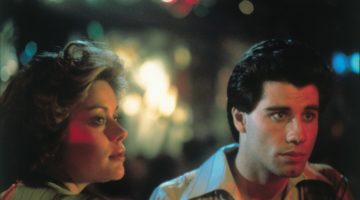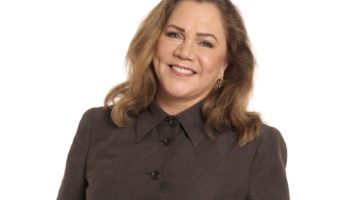Interview: Ramin Bahrani Talks '99 Homes'
Opening in limited release this weekend, 99 Homes from director Ramin Bahrani is a pulse-pounding thriller centering around Dennis Nash (Andrew Garfield), a single father and construction worker who is evicted from his home by ruthless businessman Rick Carver (Michael Shannon). In order to win his life back, Dennis is forced to become Rick’s protege, doing his dirty work and eventually evicting other families in order to provide safety for his own. A gripping look at the American housing crisis and its effects across countless citizens, 99 Homes is a very timely film that exposes the truths and hardships of the situation that go unnoticed.
We spoke to director Ramin Bahrani about his filmmaking process, and what he learned through tackling such an audacious project.
SC: The plot of 99 Homes speaks volumes to millions of Americans across the country. What inspired you most to tackle this crisis?
RB: Like a lot of people, I was reading about it, and seeing all the headlines. But I didn’t really know what it was, and I wanted to know, because I’m curious about the world. So I just went down to Florida and started doing the research, and was just increasingly startled. I really couldn’t believe what I was seeing, and I just thought that I had to tell the story, that audiences would want to see this film. I never knew that real estate brokers carried guns, because they were terrified about who was going to be on the other side of the door when they knocked. Its startling, and really created that thriller aspect of the film. I didn’t really understand how systemic and barbarous the system was. From the courts to the corruption scams, it was just mind boggling how corrupt everything was, and how it seemed impossible to get anywhere, without starting to question morality, and that was able to find that fallacy structure. That in turn started to dilute all the black and white, good and bad, creating a very messy moral story, where its not clear what is the best decision to make.
SC: It’s interesting how much morality and ethicality play into the level of tension experienced while watching the film. Would it be fair to call 99 Homes a humanist thriller?
RB: I know a lot of people are saying it’s a clear-cut humanist thriller or social thriller, I mean why not? This film has heart, but it’s also a thriller, and becomes an edge-of-your-seat type of movie, and that’s what I was witnessing down there. The people never slept, they were always tense. Violence around every corner. Constantly tough decisions being made to survive that involved so much corruption and so many ethical decisions, you really didn’t know what to do anymore. And as I said, everyone carries guns, this is what it was. And my job as writer and filmmaker, was to have the location and the characters in the story tell me what I’m supposed to do, and how I’m supposed to make the film.
SC: What were the challenges in working with a much larger subject than in your other films?
RB: My first three films had smaller budgets, but were much more focused in what they were going for. Here, the challenge was how you incorporate a much larger social world and scope to the story, which is always very hard. I think here that the challenge was what not to include, like we’re not going to take this all the way to Wall Street or Washington or to the international level.
SC: What was your experience in working with big actors like Andrew Garfield and Michael Shannon, compared to a smaller scale film like your debut Man Push Cart?
RB: They’re different experiences for sure, but some of the principles remain the same. Michael Shannon is one of the greatest actors working in the world today. I’ve wanted to work with him for a long time, and he’s just unbelievable. I think his performance here to me is just…I’ve never seen anything like it, it’s something incredible that he’s done here. And he’s always adding something new to the scene, he’s so good at taking the character and making it feel more enriched than what I had imagined on my own. Andrew Garfield was great because we’ve never seen him in such an adult-based lead role. Andrew’s style is very loose and improvisational, he changes things take-to-take; while Michael is like a bulldog that knows that he wants, so that created a lot of sparks on set. They respected each other which was important because the characters also respect each other. But what I was watching on set was two heavy weight boxers going twelve rounds, metaphorically punching each other over and over again, which was pretty damn exciting to watch. I think from watching the screenings that I’ve attended with the audience, what people are reacting to is world they’ve never seen, this world of foreclosure, and its creating a lot of emotion in people.
SC: In your research, were there any particular cases that you decided to weave into the narrative of the film?
RB: Pretty much everything you see is based on reality. I don’t think there’s any scene in the film that didn’t come from something true. Of course the characters have been fictionalized, but the foreclosure courts, what happens to Andrew, that’s for real. People killing themselves or shooting guns out of their home, that’s for real. Living in motels – I’ve been to those motels – they’re for real. People angrily backing up their sewage and skipping out of town and leaving the house as a disaster zone, that’s for real.
All the scams you see in the film, those are based on scams on real things that are happening, and there aee more scams that I couldn’t even fit into the film. So all those elements in the film are based on real things, and then you start to fictionalize the characters, make composites of people you’ve met, you make things up, dig deeper, that sort of thing, and then you just go from there.
We also talked to a lot of real people in the film. During the eviction scenes, that’s adding a lot of authenticity to the scenes. The cleanup crew that drags stuff out of the house, that’s what they really do for a living. When Andrew’s knocking on doors to evict people, every other person is an actor, but every other other person is a non-actor, is a real person in their real home, and I would never tell Andrew what was going to happen when he knocked on the door – things would just come at him. Could be a Hispanic family that doesn’t speak English, could have been an old man, who had no idea what was happening and had nowhere to go. Or it could have been a man with a gun. And Andrew would just have to deal with that situation as it happened.
With the housing crisis, very few people on a low level went to jail. Nobody directly responsible went to jail, instead they were rewarded with tens of millions of dollars. This is an abusive, rigged system that people are angry about, when people see this film they’re feeling empathy and anger for the characters, that put Andrew’s character into these tough moral situations, where he doesn’t know what to do. It make Michael become who he is. He’s the devil, but he’s just a product of the system. We have to remember that no one raises their hand in kindergarten and says ‘teacher, teacher, I want to evict somebody one day’, nobody thinks like that.
99 Homes is now playing in limited release in Toronto, and expands to more theatres nationwide on October 16th.




